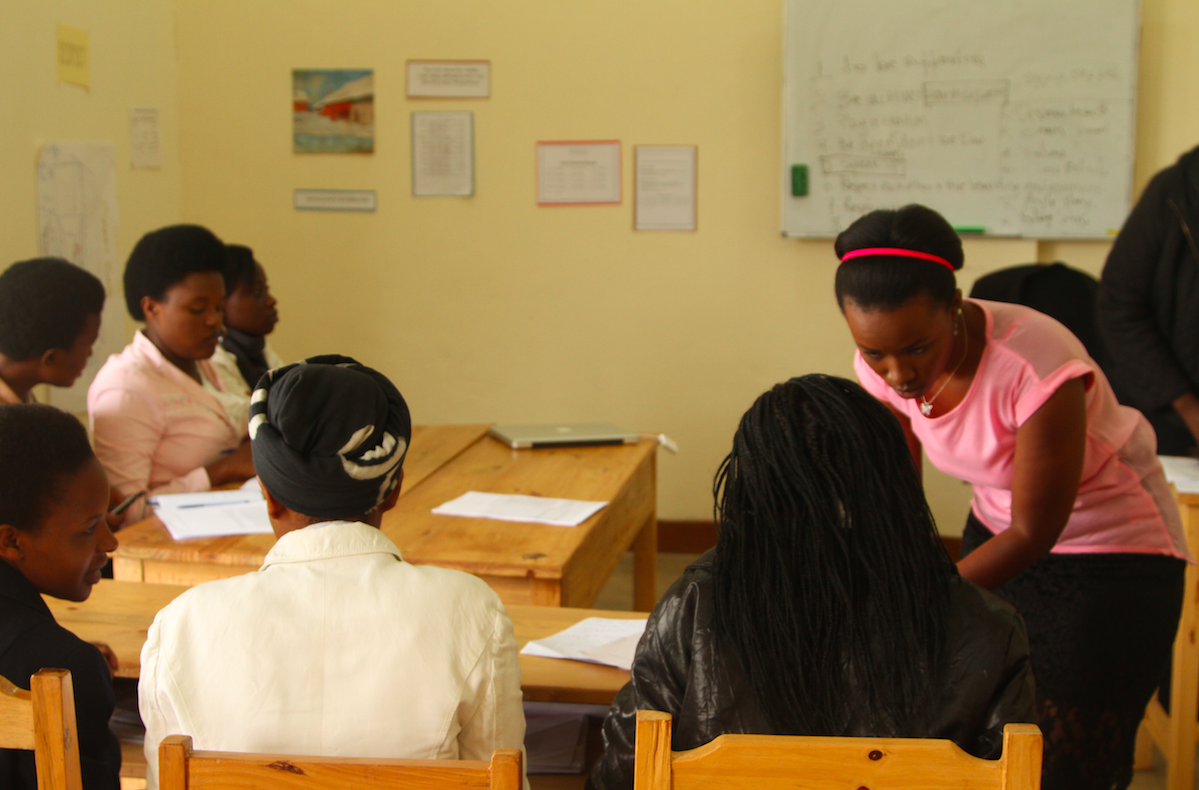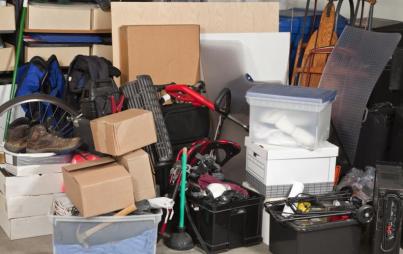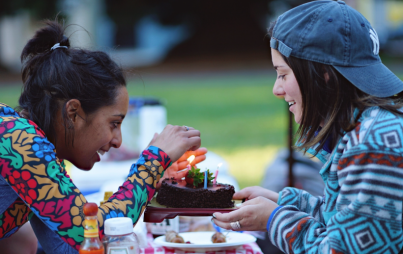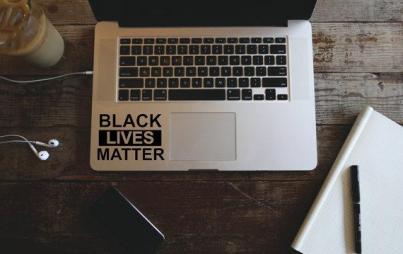
There are women who lead, but then there are women who are true leaders who empower and inspire others to do the same. Ayla Schlosser is one of those women. After graduating from Smith College in 2009, she became a community organizer for environmental organizations in Oakland, California and Washington, D.C. Quickly, she realized that the most important part of community organizing was teaching others to carry the message.
Ayla began to dream that she could use storytelling to help women break down barriers and become leaders in their own communities. She sought to find an organization to work for that would fit her vision and idea, but she came up empty handed.
Then, during a solo cross-country road trip, she reflected upon one of her favorite quotes:
“If I am not for myself, who will be for me? If I am only for myself, what am I? If not now, when?” – Rabbi Hillel
By the time she arrived in California, she came up with the idea for Resonate; an organization that holds Storytelling For Leadership workshops within existing programs to empower women.
I sat down with Ayla to discuss why she is passionate about storytelling, what it is like to be a woman in Rwanda, and the future plans for her organization. Her passion, dedication, and knowledge aren’t just impressive, but truly inspirational.
What does Resonate do?
Resonate believes that all women have the potential to lead change in their lives and communities, and uses storytelling workshops to empower women and girls to generate change and become leaders. Working with women in Rwanda and partnering with a variety of impact organizations in East Africa, Resonate is changing the lives of women and girls and the communities they are connected to by providing leadership coaching and tools. Resonate’s program supports participants to be agents of positive change in their lives, families, and communities.
What happens at a typical workshop?
Resonate’s storytelling workshops train women and girls to leverage their personal narrative and unleash their self-confidence, strength, and power to lead. The act of developing and sharing one’s story — a process of self-recognition and identifying moments of resilience — builds self-confidence. Participants learn to talk about who they are, what they value, and what their goals are — whether to demonstrate their abilities, forge partnerships, inspire others, or organize communities. Participants also come together during workshops to build communities of strong, supportive women.

What makes you passionate about story telling?
Storytelling is one of the most fundamental ways that we hear, process, and understand information. It is an incredibly powerful form of communication — and it’s a source of power that everyone has, because everyone has a story.
How does story telling empower women?
For a woman, learning to talk compellingly about herself and her work can mean the difference between learning a craft and being a social entrepreneur. It can mean the difference between having an idea about how to fix a problem and successfully rallying others to implement community-based solutions. Personal presentation is a necessary skill for all leaders, and storytelling is one of the most powerful and effective ways to get someone interested and invested in a person and her ideas. Teaching storytelling as a communication tool can bridge the gap between the important work of increasing women’s education and economic independence, and building a platform for women to leverage those skills into leadership for change.
You’re a Jewish woman from California, what drew you to Rwanda?
When I first set out to start Resonate, I had a number of different locations where I was considering piloting the program internationally. After researching and talking with potential partner organizations in a few different countries, I chose Rwanda.
Rwanda has the highest percentage of women in parliament at 64% — so there is a lot of support for women’s empowerment and leadership. Yet at a local level, women fill only 8% of leadership roles. At Resonate, we see a huge opportunity to work in partnership with groups that are focused on women’s skill building and education, and offer our Storytelling for Leadership course as a way to ensure that women and girls have the support and the tools they need to take advantage of the opportunity here.
What is daily life like for you there? Do you feel out of place as an American?
Community is incredibly important to me. When I first moved to Rwanda I stayed for a few weeks with a friend’s sister, but I didn’t know anyone else in the country. I made a very intentional effort from the start to build a community here by attending events, getting involved in the local music scene, and inviting new acquaintances — Rwandans and foreigners alike — to my house for dinner often.
Now, only a year and a half after moving to Kigali, I truly feel as though I have a family here. Of course there are cultural differences and language barriers that can lead to mistakes or misunderstandings, but in a weird way I feel grateful for them. Those little mishaps jolt me into a presence of mind that gives me frequent opportunities for self-reflection. My life here isn’t always seamless, but it is full of love and learning.
What makes you want to support Rwandan women in particular?
I have always been outspoken — from standing up for myself when I was bullied as a child, to acting in plays, writing music, and organizing political protests. But I know that few young women grow up with the same freedoms. Meeting Solange Impanoyimana, now Resonate’s lead trainer, deepened and solidified my commitment to this work. Solange is the only member of her family to survive the Rwandan Genocide of 1994. She did not have family or close friends with whom to talk about her experiences, and so she stayed silent. It was only a few years ago that she began feeling comfortable enough with those in her life to share her own story. Now, with Resonate, she shares her story regularly.
After working together for almost a year, Solange told me why it is she is so glad to be a trainer with Resonate. She said that when she leads storytelling workshops she feels as though she is releasing herself from years of silence, and empowering others with the strength and healing that comes from the ability to tell one’s own story.
Solange and I are both extremely committed to using our own capacity and passion for expression to create opportunities for Rwandan women to have the confidence in themselves and the liberty to speak their minds and act on their ideas.
What are your future plans for Resonate?
We piloted Resonate’s model in Rwanda, and Kigali is the hub of our operations — but we’re also working in Kenya and Uganda and plan to expand throughout East Africa and beyond. As we said before, we believe that all women — everywhere — have the potential to be leaders and change makers, and we hope to have the honor to support women and girls across the world.
In the short term, we are working this year to build a Leadership Network that will ensure that the work of Resonate does not end with the workshops and those who attend them. By attending the storytelling workshops, women are trained to understand and leverage their own personal story, as well as how to train others to uncover their personal stories. By becoming part of Resonate’s leadership network, they can continue to engage with Resonate’s work, with continued training, and with each other. In doing so, these women are contributing to an ongoing process of empowering a vast network of women throughout their lives and communities to be leaders and agents of change.
You can hear the inspiring stories of the women Resonate works with,sign up for updates, support the programs, or email info@resonateworkshops.org with any questions.






